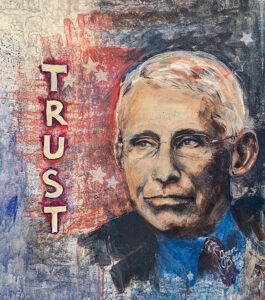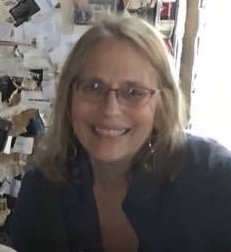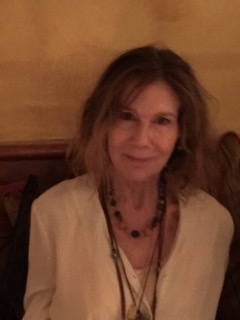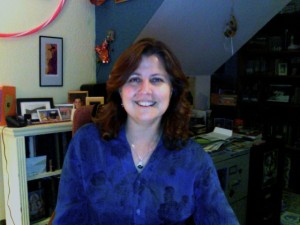
September 2020
The smoke arrives Monday night, filling the sky with a deep ashen yellow. A color associated with jaundice, with sickness. The winds follow. Forceful, demanding, intentional. Tossing around electrical wires and tree limbs with careless abandon. Then we lose power.
In the morning, at my mother’s house thirty-five miles away, she awakes to perpetual night. The sky remains smothered black with smoke all day. Her county is put on an evacuation warning for wildfires.
Our family has spent multiple generations in this part of Oregon; we have never been concerned with wildfire. Typically, this is a place saturated with dampness – sodden earth, soggy leaves, dewy grass. Mosses and mushrooms absorbing the wetness, proliferating. But these times are not typical. The novelty of these fires renders us inexperienced, turns us fearful.
Refreshing the county’s website every half hour, I fixate on the evacuation level assigned to my mom’s house. All day Tuesday, it is coded Level One, “Get Ready!” All day Wednesday, Level One. After lunch on Thursday, it turns. Level Two, “Get Set!”
I cannot bear the thought of my mother sitting there, waiting for the starting gun, announcing the arrival of the last possible moment to run for her life amidst towering flame, her little Jack Russell, Scottie, in tow. We do not wait for Level Three, “Go Now!” My husband retrieves her and Scottie. They will stay with us, my husband and me and our two cats, in our 1,000sf condo in North Portland.
The condo is townhouse style, two levels, and more than enough space for my husband and me, but adding another body will require some adjustments. There are two bedrooms, but only one bed, as the second room is where I work from home since the pandemic descended on us six months ago. Mom will need to sleep on the couch on the main level. We are unclear of the fire’s timeline. Will this be for a day? A week? A month?
Our cats roam the condo like pampered princesses. They have full reign, sitting on top of tables and couches, yoga mats and laps as they please. Scottie cannot wait to terrorize them. For the cats’ sanity, and mine, I quarantine them to the space upstairs, and let Scottie rove downstairs. The upstairs is roughly 300sf; an area bigger than my first studio apartment. But I still feel guilty for restricting the cats’ freedom. Upon entering their new territory, they look at me with their luminous eyes, asking what they’ve done to deserve such harsh treatment, tugging at my heartstrings.
We watch the news like an addiction. Minute by minute, we try to assess if the fires are expanding or contracting. Waiting to see if the winds will shift direction, increase velocity, changing one’s fortune in a hot penetrating rush of air.
We view footage of families fleeing, stuck in miles of traffic. They arrive at evacuation centers, sleeping on cots, in their cars. The animals are the most heartbreaking, the sheep and horses and cattle. I cannot bear to look at them, their confused faces, their inability to comprehend what is about to happen to them.
In the shared space of the condo, we perch together on the couch, the only real place to sit in the house, which also serves as Mom’s makeshift bed, unable to go outside due to the toxicity of the smoke-filled air. The three of us must compromise our tastes, deciding what to eat for our shared dinner, negotiating who will take a shower when and which corner we will each retreat to when we need some time alone. These four walls constrict us, like a pair of pants a shade too tight, chafing at the waistline.
Except, on occasion, Scottie must be taken outside to use the bathroom. Mom leashes him up, and I go with them. We’ll take a brief walk down on the river path.
Normally, there is a moisture to the atmosphere. Breathing it in makes the lungs feel washed clean, expansive. The dry acridity of today’s air is a particular injustice for us. I can taste the smoke in my mouth, feel it seep into my clothes, a dull throbbing begins above my left eye. Intrinsically, our lungs constrict, requiring shallow breaths in order to limit our bodies’ intake of noxious smoke. Our air, responsible for imbuing us with life, is now our adversary, choking us.
This walk is one of the joys of living where we do. Crimson leaves falling in autumn partnered by whiffs of tangy pine; in winter, the barren trees providing an unrestricted view of the Willamette River, its tugs and barges lumbering up the waterway; the forest across the river bursts with vibrant strokes of lime green in the spring, accompanied by the beckoning trill of songbirds; the intoxicating aroma of sweet grasses wafting on the breeze in summer, sunlight glinting off the river.
Today, the path is eerie, vacant, still. There are only one or two other people about. They are houseless. Those with nowhere else to go. No means by which to escape the scratched throats and dry coughs and burning eyes produced by this smoke.
Out of the haze, a woman rides towards us on a bicycle, shouting, “Munchkin! Munchkin!”
Her energy is erratic. As our trajectories cross, she stops, props one foot on the ground. She wears a black tank top and jeans, her dirty blonde hair pulled back in a ponytail. It’s difficult to guess her age; I estimate early thirties. She appears comfortable on her bike, able-bodied, and her nose is covered in freckles. But there is also an emptiness to her gaze, and a series of markings and discolorations on her bare arms, that indicate perhaps a rough life has aged her beyond her years.
I could just keep walking with Mom and Scottie. It would not be unreasonable. But something compels me to make eye contact, to stop alongside her.
“Have you seen a dog run by here?” she asks, “I’ve lost my dog. She’s been missing since this morning.”
“No, I’m sorry,” I say. “We haven’t seen any dogs run by. What does she look like?”
“She’s silver with a pink bow around her neck. Her name is Munchkin. She answers to that. She’s super playful. If you see her, don’t be afraid – her bark is worse than her bite. She loves to play.”
“We’ll keep our eyes out. If we find her, are you over here?” I gesture to a dilapidated camper trailer, blue tarp strewn over the roof, propped up on jacks. The trailer arrived on this side road, close to the river path, a couple months back. I walk past this spot daily, which usually triggers aggressive barking from a dog housed inside. Today there is a notable silence as we pass. I make the connection that the absence of barking might equate to the absence of Munchkin.
“No, I’m down by the river,” she says.
Down by the river means down the uneven embankment, through piercing brambles and discarded shards of glass, to a slim patch of murky sand on the river bank where people have pitched a makeshift encampment of tents and tarps and lean-tos using driftwood and scavenged debris. I’ve seen the people who emerge through the underbrush from the river bank, like hobbits from another world, with torn backpacks and unshaven faces and mud-caked sneakers.
She continues talking, providing us with more backstory on Munchkin. “She went missing last month for a while. Someone had taken her. It took me weeks to get her back. It was terrible.”
“That’s awful,” I lament, “We’ll be watching for her. I hope she comes home soon.”
She thanks us, then bikes away in the opposite direction, calling out again, frantic, “Munchkin!”
We cross a set of rusted railroad tracks, then Mom whispers, concerned, “Did you see the bruises? On her arms and her back? Her eye.” She sighs, “Someone beat her up.”
My mind cannot fathom the staggering challenges this woman must face on a daily basis. Living on the street, struggling for safety, searching for the solace of a missing canine companion.
In a few minutes, after Scottie finishes his business, my mom and I will return to the condo where the air inside is breathable. We will rest on the couch and watch a rerun of Matlock and eat cinnamon sugar Pop-Tarts and drink freshly brewed coffee. The abundance of my life is immense.
I hope Munchkin will return home sooner rather than later. I hope this woman will be free from harm tonight. I hope there is a place she can go to get a breath of air that does not make her feel like she is burning from the inside out.








